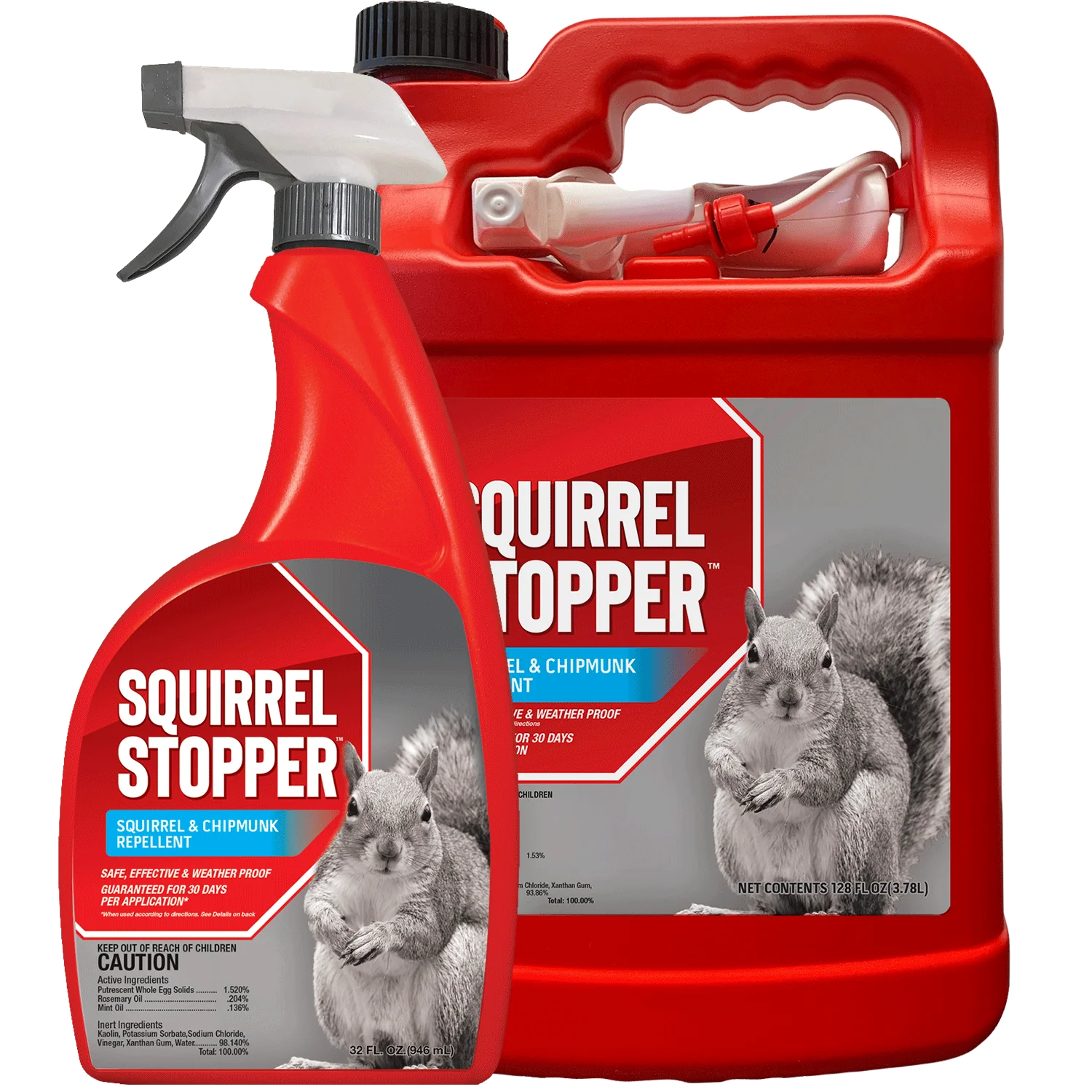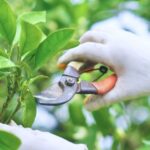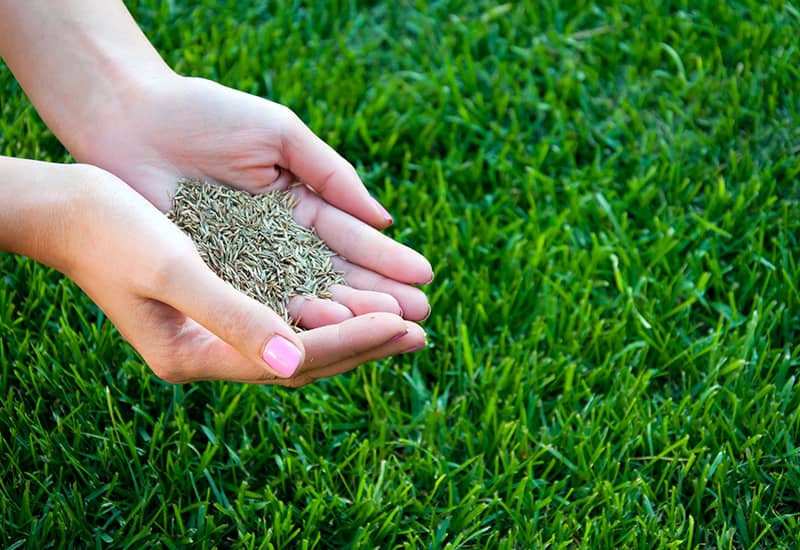Introduction to Squirrel Repellent Sprays
Squirrels, while often regarded as cute and entertaining wildlife, can cause significant problems for homeowners and gardeners. From damaging plants and flowers to raiding bird feeders and fruit trees, these small mammals can quickly become a nuisance. In many cases, traditional methods like traps or fencing may be insufficient or impractical, making squirrel repellent sprays an essential tool in the homeowner’s arsenal.
- Introduction to Squirrel Repellent Sprays
- Why Squirrels Are a Problem
- Types of Squirrel Repellent Sprays
- How Spray Repellents Work
- Choosing the Right Squirrel Repellent Spray
- Application Techniques for Maximum Effectiveness
- Benefits of Using Squirrel Repellent Sprays
- Common Mistakes to Avoid
- FAQs About Squirrel Repellent Sprays
- Related Landscaping Tips
- Conclusion & Call-to-Action
Spray repellents offer a convenient, safe, and effective way to deter squirrels without harming them. They can be natural, homemade, or commercially available, ensuring a solution for every type of garden or yard. Moreover, when chosen and applied correctly, these sprays protect plants, preserve aesthetic appeal, and are safe for pets and children.
This comprehensive guide explores the best squirrel repellent sprays, explaining how they work, their types, application techniques, and benefits for maintaining a thriving and damage-free garden.
Why Squirrels Are a Problem
Damage to Gardens and Plants
Squirrels are notorious for digging up seeds, eating seedlings, and stripping bark from trees. In vegetable gardens, they may consume young plants entirely, while in flower beds, bulbs and tubers often fall prey to their foraging. This damage can be particularly frustrating for homeowners investing time and money into landscaping or gardening projects.
Risks to Bird Feeders and Fruit Trees
Bird feeders attract squirrels due to the availability of seeds and nuts. In addition, squirrels frequently raid fruit trees, consuming apples, cherries, or berries before they fully ripen. This not only reduces yields but also increases the risk of attracting other pests such as raccoons or insects drawn to fallen fruit.
Structural Damage to Homes and Lawns
Beyond plants and food sources, squirrels may chew on wires, wooden structures, and garden equipment. In attics or sheds, they can cause significant structural damage while creating nests. Their burrowing habits may also disrupt soil structure and compromise lawn integrity.
Types of Squirrel Repellent Sprays
Squirrel repellent sprays can be classified into three main categories: natural, homemade, and commercial. Each type has unique benefits and considerations.
Natural Squirrel Repellent Sprays
Natural sprays use ingredients derived from plants or essential oils to deter squirrels. Common components include:
- Garlic and onion extracts: Strong odors repel squirrels effectively.
- Hot pepper or chili-based sprays: Capsaicin irritates the squirrel’s mouth and nose, discouraging feeding.
- Essential oils: Peppermint, citronella, and eucalyptus are commonly used for their pungent aromas.
Advantages:
- Non-toxic and safe for humans, pets, and plants.
- Environmentally friendly.
- Can be used freely around gardens, lawns, and vegetable beds.
Limitations:
- May require more frequent application due to rain or irrigation.
- Strong odor may also affect humans if used indoors.
Homemade Squirrel Repellent Sprays
Creating your own repellent spray is an effective and affordable approach. Popular DIY recipes include:
1. Garlic and Hot Pepper Spray
- Ingredients: 2-3 cloves garlic, 1 tablespoon cayenne pepper, 1 quart water, 1 teaspoon mild dish soap.
- Process: Blend garlic with water, add cayenne, and strain. Mix with dish soap and spray directly onto plants.
2. Vinegar and Peppermint Oil Spray
- Ingredients: 1 cup vinegar, 10 drops peppermint oil, 1 quart water.
- Process: Mix thoroughly and apply to areas frequented by squirrels.
3. Egg-based Spray
- Ingredients: 1 raw egg, 1 quart water, 1 tablespoon chili powder.
- Process: Whisk together and spray around plants or bird feeders.
Advantages:
- Cost-effective and easy to prepare.
- Safe for use in edible gardens with proper dilution.
- Customizable according to personal preferences and plant types.
Limitations:
- Must be reapplied frequently after rain or watering.
- Some ingredients may temporarily affect plant appearance.
Commercial Squirrel Repellent Sprays
Several ready-to-use products are available on the market for homeowners seeking convenience and reliability. Popular examples include:
- Nature’s MACE Squirrel Mace: Works on squirrels, chipmunks, and other rodents. Safe for people, pets, and plants.
- Bonide Chipmunk & Squirrel Repellent: Spray-on formula that uses natural oils to deter squirrels.
- Animal Stopper Squirrel Stopper: Repels squirrels from plants, fruit trees, and outdoor furniture.
Advantages:
- Convenient and ready to apply.
- Tested for effectiveness and safety.
- Often longer-lasting than homemade solutions.
Considerations:
- Slightly more expensive than DIY options.
- Ingredients vary, so always check for compatibility with edible plants.
How Spray Repellents Work
Spray repellents employ various mechanisms to deter squirrels.
Scent-based Repellents
- Use strong odors that squirrels find unpleasant.
- Often derived from garlic, hot peppers, or essential oils.
- Can cover large areas to keep squirrels away from gardens and bird feeders.
Taste-based Repellents
- Cause squirrels to experience an unpleasant taste when nibbling plants or fruit.
- Includes hot pepper or bitter compounds.
- Discourages repeat visits while remaining non-toxic.
Chemical-free vs Synthetic Solutions
- Chemical-free sprays rely on natural deterrents, ensuring safety for children, pets, and plants.
- Some synthetic sprays may include additives for longer-lasting effects but should be used according to label instructions.
Choosing the Right Squirrel Repellent Spray
Selecting the ideal spray depends on several factors:
- Safety: Must be non-toxic to humans, pets, and beneficial insects.
- Plant compatibility: Avoid sprays that could harm delicate flowers, vegetables, or fruit trees.
- Effectiveness: Consider the level of squirrel activity in your yard.
- Application frequency: Choose products that last through rain or irrigation for convenience.
Seasonal Considerations:
- Spring and summer often see higher squirrel activity due to planting and fruiting.
- Fall may require repeated application to protect ripening fruit.
Application Techniques for Maximum Effectiveness
Proper application ensures the best results.
Proper Spraying Methods
- Spray leaves, stems, and the base of plants.
- Ensure thorough coverage without oversaturation.
- For bird feeders, coat surrounding areas rather than food directly.
Frequency of Application
- Homemade sprays: every 3–5 days or after rain.
- Commercial sprays: follow manufacturer instructions; some last up to 2–4 weeks.
Tips for Long-lasting Results
- Apply during dry weather to maximize adhesion.
- Combine sprays with physical barriers like netting or fencing.
- Rotate types of repellents to prevent squirrels from acclimating.
Benefits of Using Squirrel Repellent Sprays
- Protect plants and gardens: Minimizes damage to flowers, shrubs, and fruit trees.
- Non-lethal and safe: Avoids harming squirrels, pets, or humans.
- Cost-effective: Homemade solutions reduce reliance on expensive commercial products.
- Low-maintenance: Less labor-intensive than trapping or installing barriers.
Common Mistakes to Avoid
- Over-application: Can harm plants or create unpleasant odors.
- Using toxic chemicals: Avoid products unsafe for pets or children.
- Ignoring weather conditions: Rain or irrigation can wash away sprays.
- Inconsistent application: Reduces effectiveness and allows squirrels to return.
FAQs About Squirrel Repellent Sprays
Q1: How long does a squirrel repellent spray last?
- Homemade sprays usually last 2–5 days, depending on rain. Commercial sprays may last up to 2–4 weeks.
Q2: Can I use it on fruit trees?
- Yes, but always check ingredients. Natural sprays like garlic or chili-based formulas are safe for edible plants.
Q3: Are natural sprays really effective?
- Yes, when applied correctly and consistently. Strong odors and tastes discourage squirrels effectively.
Q4: Will it harm my pets or children?
- Natural and properly diluted homemade sprays are safe. Commercial sprays should be verified before use.
Q5: How do I prevent squirrels from returning after use?
- Combine sprays with physical barriers, mulch management, and removal of food sources. Rotate sprays to prevent habituation.
Q6: Can I make a homemade spray in bulk?
- Yes, but store in a sealed container and shake well before use. Prepare fresh batches every 1–2 weeks for best results.
Q7: Do squirrels eventually get used to repellents?
- They may, if only one type is used. Rotate sprays and combine with other deterrents for consistent results.
Q8: Can I use these sprays indoors?
- Indoor use is possible for small areas, but strong odors may affect humans. Ventilation is recommended.
Related Landscaping Tips
For more garden care strategies and pest management solutions, see our guide on Plant Growth Regulators: Types, Uses, and Benefits for Healthy Plants. Combining proper plant care with repellent strategies ensures a healthy, thriving garden year-round.
Additional tips include:
- Proper lawn and garden maintenance.
- Seasonal pruning to reduce squirrel hiding spots.
- Installing bird feeders with squirrel-proof designs.
Conclusion & Call-to-Action
Squirrel repellent sprays are an effective, safe, and eco-friendly solution to common garden and home problems caused by squirrels. Whether using natural, homemade, or commercial sprays, homeowners can protect plants, fruit trees, and outdoor spaces without harming wildlife.
By following proper application techniques and safety guidelines, you can ensure long-lasting protection, reduce maintenance labor, and enjoy a thriving garden free from squirrel damage.
Call-to-Action:
Protect your garden and enjoy a squirrel-free landscape today! Contact Landscaping Studios for expert advice, product recommendations, and tailored solutions to safeguard your plants while maintaining a safe and healthy environment for your family and pets.





